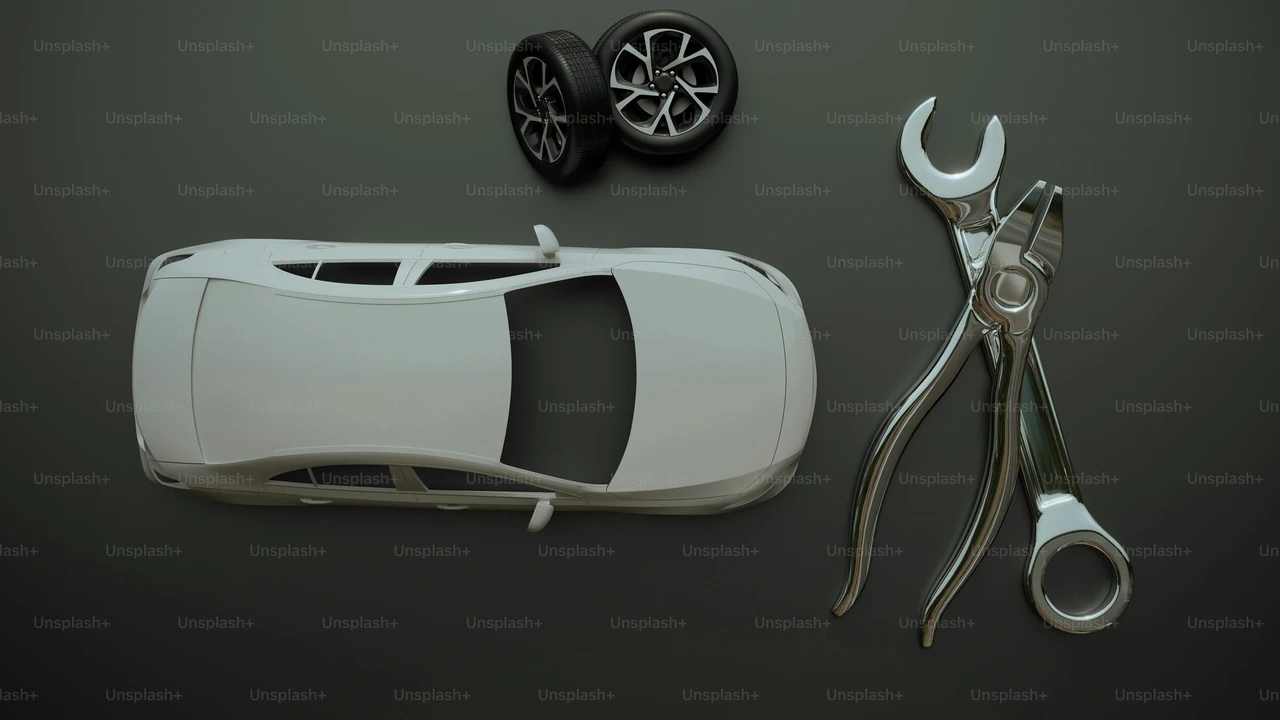Surge Protectors for EV Chargers: Protecting Your Investment
Surge Protectors for EV Chargers Protecting Your Investment Learn about the importance of surge protection for your charging equipment Discover the best surge protectors for EV chargers and safeguard your investment

Understanding the Importance of EV Charger Surge Protection
Alright, let's talk about something that might not be the flashiest part of EV ownership, but it's definitely one of the most crucial: surge protection for your EV charger. You've invested a good chunk of change in your electric vehicle and the charging equipment that keeps it running. The last thing you want is a power surge frying your charger and potentially damaging your car. Think of a surge protector as an insurance policy for your EV charging setup.
Power surges are sudden spikes in voltage that can wreak havoc on electronic devices. They can be caused by lightning strikes, power outages, or even appliances turning on and off in your home. These surges can overload your EV charger, leading to component failure, reduced lifespan, or even complete destruction. A good surge protector acts as a barrier, diverting excess voltage away from your charger and protecting it from harm.
How Do EV Charger Surge Protectors Work?
Surge protectors work by diverting excess voltage to a grounding wire, preventing it from reaching your sensitive electronic equipment. They typically use a component called a metal oxide varistor (MOV) to achieve this. When a surge occurs, the MOV's resistance drops dramatically, allowing the excess voltage to flow to ground. This protects the connected device from the surge's harmful effects.
Think of it like a pressure relief valve on a water heater. When the pressure gets too high, the valve opens and releases the excess pressure, preventing the tank from exploding. A surge protector does the same thing for electrical surges.
Choosing the Right Surge Protector for Your EV Charger Considerations and Features
Not all surge protectors are created equal. When choosing a surge protector for your EV charger, there are several factors to consider:
- Clamping Voltage: This is the voltage level at which the surge protector starts diverting excess voltage. A lower clamping voltage provides better protection. Look for a surge protector with a clamping voltage of 400 volts or less.
- Joules Rating: This indicates the amount of energy the surge protector can absorb before failing. A higher joules rating means better protection and a longer lifespan. Aim for a surge protector with a joules rating of at least 1000 joules.
- UL Listing: Look for a surge protector that is UL listed, meaning it has been tested and certified by Underwriters Laboratories to meet safety standards.
- Type of Charger: Consider whether you have a Level 1 or Level 2 charger. Level 2 chargers, especially those with higher amperage, may require a more robust surge protector.
- Installation Location: If your charger is installed outdoors, you'll need a surge protector that is rated for outdoor use and can withstand the elements.
- Warranty: A good surge protector should come with a warranty that covers damage to your charger caused by a surge.
Recommended EV Charger Surge Protectors Product Reviews and Comparisons
Okay, let's get down to the specifics. Here are a few surge protectors that are well-regarded in the EV community:
1 Siemens FS140 Whole House Surge Protector Optimal Protection for Your Home and EV Charger
Description: While technically a whole-house surge protector, the Siemens FS140 offers excellent protection for your entire electrical system, including your EV charger. It's installed at your electrical panel and provides a high joules rating for comprehensive surge protection.
Pros: High joules rating, whole-house protection, reliable brand.
Cons: Requires professional installation, higher upfront cost.
Use Case: Ideal for homeowners who want to protect all their electronic devices from power surges, not just their EV charger.
Price: Around $150 - $200.
2 Leviton 51120-1 Surge Protective Receptacle A Convenient and Affordable Option
Description: This surge protective receptacle is a simple and affordable way to protect your EV charger. It replaces a standard electrical outlet and provides surge protection at the point of use.
Pros: Easy to install, affordable, compact design.
Cons: Lower joules rating than whole-house protectors, only protects the specific outlet.
Use Case: A good option for renters or homeowners who want a quick and easy way to protect their EV charger without making major electrical modifications.
Price: Around $20 - $30.
3 Square D by Schneider Electric HEPD80 Home Electric Protection Device Robust and Reliable Protection
Description: Similar to the Siemens FS140, the Square D HEPD80 is a whole-house surge protector that offers robust protection for your entire electrical system. It's a popular choice among electricians and homeowners alike.
Pros: High joules rating, whole-house protection, durable construction.
Cons: Requires professional installation, higher upfront cost.
Use Case: Another excellent option for homeowners who want comprehensive surge protection for their entire home.
Price: Around $180 - $250.
4 Intermatic IG1240RC3 Surge Arrester Reliable Outdoor Protection for Your EV Charger
Description: Designed for outdoor applications, the Intermatic IG1240RC3 provides reliable surge protection for your EV charger in harsh weather conditions. Its NEMA 4X enclosure ensures protection from rain, snow, and other elements.
Pros: Weatherproof design, high surge current capacity, suitable for outdoor use.
Cons: May require professional installation, can be more expensive than indoor models.
Use Case: Ideal for EV chargers installed outdoors or in areas prone to severe weather.
Price: Around $100 - $150.
Installation and Placement of Your EV Charger Surge Protector
The installation process depends on the type of surge protector you choose. Surge protective receptacles are relatively easy to install yourself, while whole-house surge protectors require professional installation by a qualified electrician. Always follow the manufacturer's instructions carefully and consult with an electrician if you have any questions.
For optimal protection, install the surge protector as close to the EV charger as possible. This minimizes the distance the surge has to travel before being diverted, reducing the risk of damage.
Cost Considerations and Budgeting for EV Charger Surge Protection
The cost of surge protection for your EV charger can vary depending on the type of protector you choose. Surge protective receptacles are the most affordable option, while whole-house surge protectors are more expensive. However, consider the cost of replacing your EV charger or repairing damage to your car in the event of a surge. Investing in surge protection is a small price to pay for peace of mind.
When budgeting for surge protection, factor in the cost of the surge protector itself, as well as any installation fees if you choose to hire an electrician. Also, remember that surge protectors have a limited lifespan and need to be replaced periodically.
Maintaining Your EV Charger Surge Protector Ensuring Long-Term Protection
Surge protectors don't last forever. Over time, they can degrade and lose their effectiveness. It's important to monitor your surge protector and replace it when necessary. Some surge protectors have indicator lights that show when they need to be replaced. Others may require periodic testing with a surge protector tester.
In general, it's a good idea to replace your surge protector every 2-3 years, or sooner if you experience frequent power surges in your area.
Real-World Scenarios and the Importance of EV Charger Surge Protection
Let's consider a few real-world scenarios to illustrate the importance of surge protection:
- Lightning Strike: A direct lightning strike can deliver a massive surge of electricity that can instantly destroy your EV charger and potentially damage your car's electrical system.
- Power Outage: When power is restored after an outage, there can be a surge in voltage that can damage sensitive electronic equipment.
- Appliance Cycling: Large appliances like air conditioners and refrigerators can cause voltage fluctuations when they turn on and off, which can gradually degrade your EV charger over time.
In each of these scenarios, a surge protector can prevent costly damage and keep your EV charger running smoothly.
The Future of EV Charging and the Role of Surge Protection
As electric vehicles become more prevalent, the demand for EV charging infrastructure will continue to grow. This means more EV chargers will be installed in homes, businesses, and public charging stations. With this increased demand comes an increased risk of power surges and the need for reliable surge protection.
As technology advances, we can expect to see even more sophisticated surge protectors that offer enhanced protection and features. These protectors may include advanced monitoring capabilities, remote control, and integration with smart home systems.
:max_bytes(150000):strip_icc()/277019-baked-pork-chops-with-cream-of-mushroom-soup-DDMFS-beauty-4x3-BG-7505-5762b731cf30447d9cbbbbbf387beafa.jpg)






